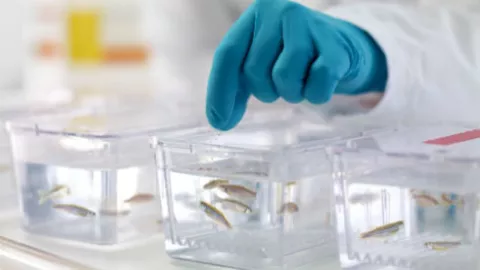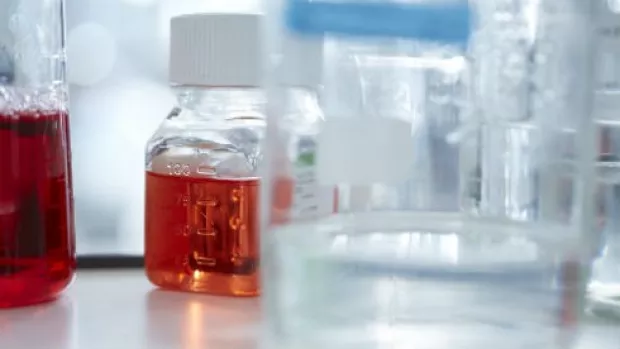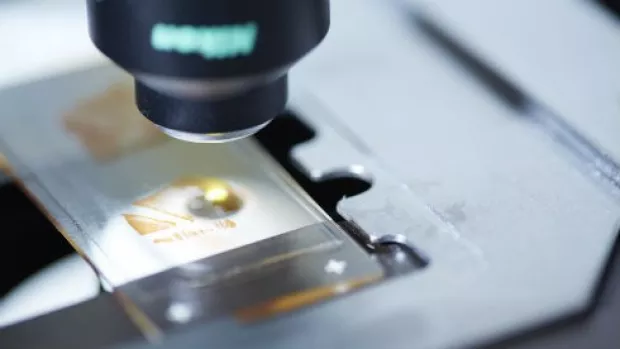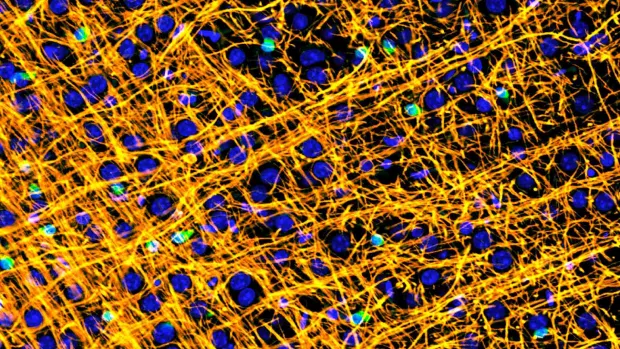
A shared goal to stop MS - new funding for research Centres of Excellence
Our two Centres of Excellence in Cambridge and Edinburgh will be working together to find new treatments, faster, for everyone living with MS.
The Centres will focus on developing treatments for the tens of thousands of people living with progressive MS in the UK, who currently have nothing to stop their disability getting worse.
After a competitive application process, we’ve committed to raise £3.7million to fund an exciting programme of work at Cambridge and Edinburgh for the next five years.
Zebrafish and robots
One pioneering project is a new drug-testing platform being developed by researchers in Edinburgh. The platform will use robots to screen thousands of possible treatments on zebrafish with an MS-like condition. Potential treatments will also be tested on MS cells grown in a dish in the lab and on human brain tissue samples. Using all these different methods together will help researchers prioritise treatments with the best chance of success in clinical trials.
Professor Siddarthan Chandran will co-lead the work at the MS Society Edinburgh Centre for MS Research with Professors David Lyons, Anna Williams and Adam Waldman.
Professor Chandran said: “This pivotal investment from the MS Society will allow us to lead vital work in the study of nerve damage, which causes long-term disability in people living with MS. We’ll be developing new ways to measure it, identifying new targets for treatments, and testing out the most promising in the lab. Our ultimate goal is that five years from now we’ll have substantially improved our understanding, and hopefully be beginning to translate this into new treatments that slow, stop or even reverse disability progression in MS.”
Imaging brains
To stop MS we need to find treatments that repair myelin – the protective coating around our nerves, which is damaged MS – and ways to protect nerves from damage.
The two centres will be developing cutting-edge brain imaging techniques to test how effective drugs to repair myelin and protect nerves are in clinical trials. Cambridge aims to be the first MS centre in the world to routinely assess myelin in people with MS.
What happens as we get older?
The Cambridge team will also build on their research on the impact of ageing on MS. They will study myelin repair in people with MS of all ages, including children. By looking at myelin repair across the human lifespan, the team hope to identify how our natural ability to repair myelin changes with age, and work out how this could be used in the development of new myelin repair drugs.
Professor Alasdair Coles and Dr Thora Karadottir will co-lead work at the MS Society Cambridge Centre for Myelin Repair.
Dr Karadottir said: “We are excited to build on the Cambridge centre’s strong foundations in developing new treatments for people with MS, and bring in what we believe will be a new era for MS treatment. Thanks to this generous donation, we can make discoveries that will benefit people living with MS worldwide – including the myelin repair therapies that are still so desperately needed.”
Treatments for everyone with MS
Our Assistant Director of Research Dr Emma Gray, said: “More than 130,000 people live with MS in the UK and our research has been vital in finding treatments for some of them. Today, we can see a future where nobody needs to worry about their MS getting worse – and our top priority is finding treatments that slow or stop MS for everyone. The work happening in Cambridge and Edinburgh is inventive, innovative and incredibly exciting, and will be vital to help us reach our goal.”




